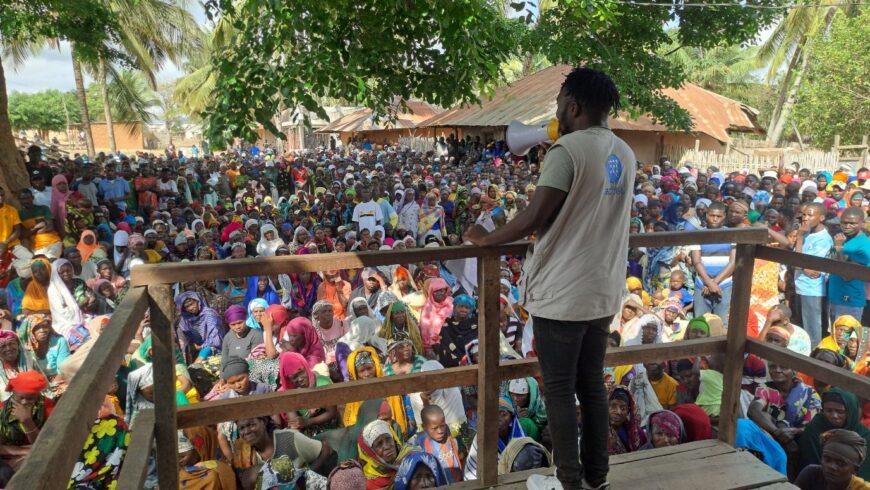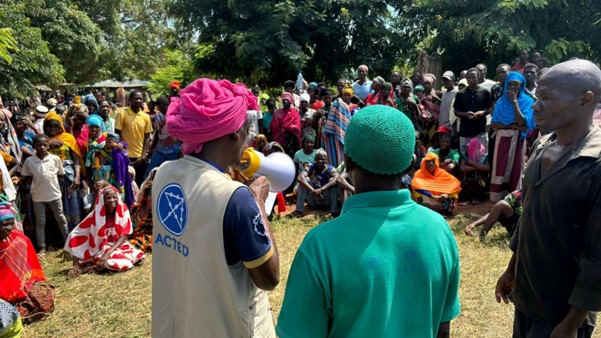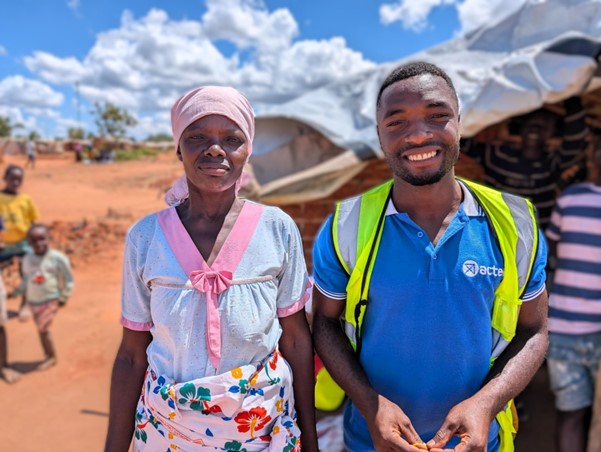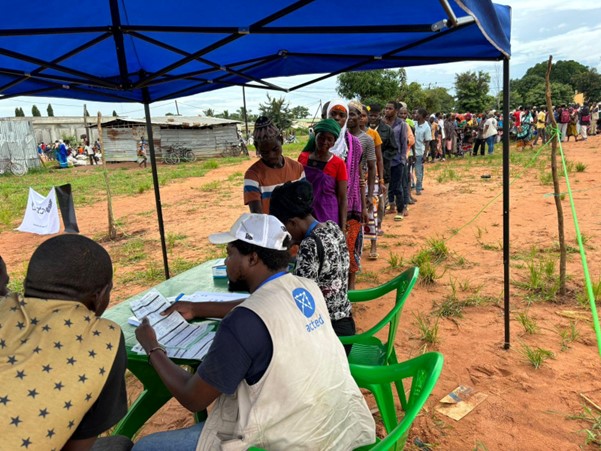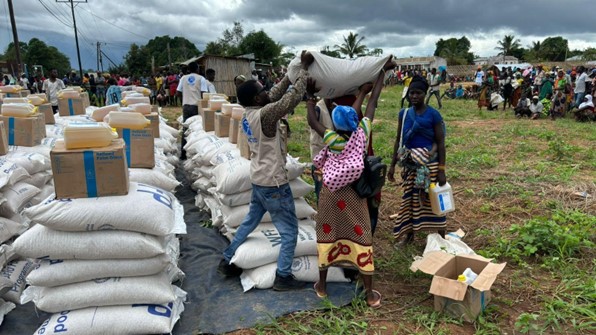Mozambique
Acted began its operations in Mozambique during 2022, in response to the humanitarian crisis in Cabo Delgado province, in the north of the country. Since then, Acted provides critical assistance to conflict-affected communities, delivering multi-sector emergency response in Food Security, WASH, CCCM, Protection, Shelter, & Education in Emergencies.
In Mozambique, Acted deploys an area-based approach comprehensively supporting communities, Government Structures and Civil Society Organizations, to develop long-term resilience and self-reliance.
Interventions address displacement areas as well as return areas, aiming at saving lives with emergency assistance and enhancing early recovery through livelihood restoration, skills trainings and pathways to durable solutions
Since 2017, the combined effects of conflict, climate and economic shocks have disrupted lives and livelihoods in the north-east of Cabo Delgado. The presence of non-state armed groups (NSAG) in the province has led to a major humanitarian crisis, causing the displacement of around one million individuals. IOM estimated 580,000 people remain displaced at the end of 2024
The prolonged displacement has eroded the income and resilience of the communities, leaving over 92% of households in need of humanitarian assistance, including 1.3 million individuals in Cabo Delgado only, as registered by REACH Multi-Sectoral Needs Assessment in 2024.
At present, the humanitarian outlook remains tenuous, due to a sharp deterioration in the security situation and an increase in NSAG activities, since January 2024. Consequently, around 870.000 individuals in IPC 3 and IPC 4 level of Food Insecurity have been identified in the province, for the Humanitarian Needs & Response Plan 2025.
Acted in Mozambique
Acted positions itself as one of the main humanitarian actors in Macomia, one of the districts most severely affected by the conflict in Cabo Delgado, as shown by OCHA’s Humanitarian Needs Overview.
In cooperation with the World Food Program, Acted is providing critical food assistance to over 135.000 individuals, including IDPs, Host Communities, and Returnees, through a life-saving Food Distribution that supports communities with regular access to nutritious food rations, including ready-to-use supplementary food for children up to 5 years old, helping to fill the population’s consumption gap, and to fight the acute levels of malnutrition in the area.
Over the years, Acted has improved access to humanitarian services such as safe, clean water, and hygienic sanitation facilities for around 20.000 Returnees in Mocimboa da Praia, Cabo Delgado, and has been active in coordination mechanisms, such as Clusters and NGO Forums both at Provincial and National Level.
Acted was co-chair of the National CCCM Cluster in 2022.
In Mozambique, Acted is working towards the 3ZERO vision through a transversal approach by deploying its flagship programmes:
- Towards Holistic Resilience in Vulnerable Environments (THRIVE) – in 2024 Acted supported 30 small-scale women-led business in Metuge with resilient, climate-smart agriculture skills training. THRIVE approach holistically addresses the immediate and structural issues of climate change and land degradation.
- Grassroots Organization Capacity Assessment (GOCA) – Acted plans to meaningfully contribute to localize aid in Mozambique by implementing its signature civil society organizational capacity assessment and development toolkit, to analyse the organisational and institutional capacity of local and national civil society organisations (CSOs).
